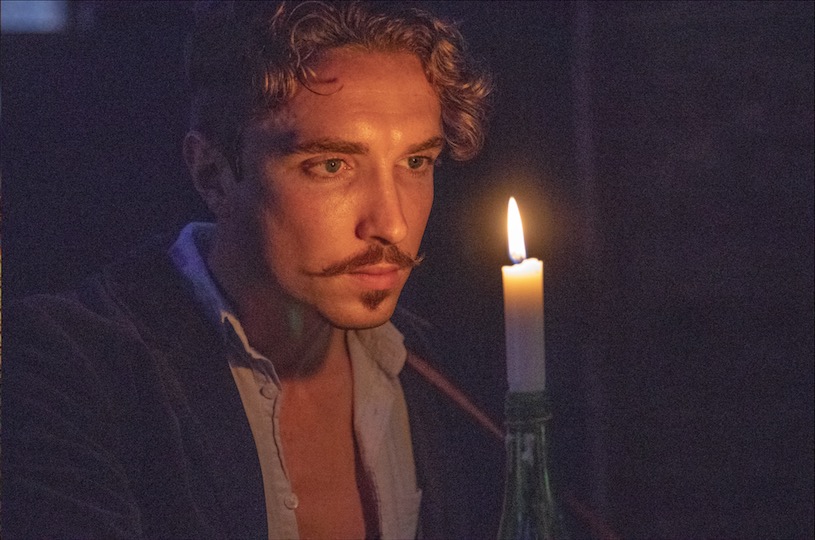
Dusk falls as David Keenan mounts a barrel outside of Leeson Street’s East Side Tavern. He holds a candle high above his head and leads us lucky few in song, his charisma palpable and never faltering. Cliche is a funny thing – the closer we approach it the more we cringe, but at some point a line is crossed and what could have seemed cliched becomes pure and genuine. It’s across this subtle border that David’s music and character reside. Sweet but not saccharine, clear but not trivial, he shouts aloud – “Keep the flame alive!” – as he leads us in giddy procession upstairs to the gig, the candle somehow burning through the evening breeze.
The next two hours seem to pass instantaneously. After a run of beautiful vocal escapades that twist with the elasticity of Jeff Buckley and the narration of a Dundalk Dylan, Keenan surrounds himself with virtuosic musicians who raise him up on strong shoulders. By the end of the night we are all collectively rising and falling, singing and dancing to the tune of laughter and Keenan’s preaching of the faith that brought us all together.
As the exodus begins Keenan greets me with a smile and sits down to chat backstage. He speaks and conducts himself with an intensity almost at odds with his era, reminiscent of the poets of an older, Joycean Dublin. A distinct Louth twang completes an idiosyncratic picture.
“I was never in a scene in Dundalk”, he begins. “I’ve always seen myself as a kind of observer, and that probably comes across in a lot of my songs … I went to school in Dundalk but I moved nine miles outside to the countryside, so I was a townie in the country and a culchie in the town. It gifted me a sense of being an outsider, and I think that theme crops up again and again in my songs.”
The first bands that join Keenan on stage are clearly some of the rising stars of Irish music, accomplished artists in their own right. Junior Brother glides effortlessly through delicate guitar lines while Gareth Quinn Redmond emulates a young Warren Ellis. String duo Lemoncello tie it all together with swelling strings and ambitious harmonies, not a note out of place. Keenan is later joined by veterans, virtuosos known only as the Unholy Ghosts, a song title of Keenan’s.
“I’ve always wanted to meet these like-minded individuals who I could collaborate with and bring these soundscapes in my head to life. We have a bond, we trust each other to express ourselves. The Unholy Ghosts have allowed me to put down the guitar and express and deliver in a different way. It’s very freeing.”
When I ask how it feels to shed the guitar, to be exposed, Keenan smiles. “Dropping the guitar, it’s like taking off a layer of clothing. The guitar becomes an extension of the self. Our pores open and our sweat and blood seeps into the wood. The first piece of music of my guitar I heard was the birds singing in it when it was a tree, and it somehow landed in my lap.”
I thank him for the free gig and we spiral into politics and ticket prices. He tells me the state of the industry has become reprehensible, but that it’s their cross to bear now and it’s up to the people to keep their eye on what really matters.
“There’s a kid in Dundalk in their bedroom and they’re writing better music than I ever could hope to. That’s what it’s all about, not going to music college in the city. Sean O’Casey said the book is as important as the loaf of bread on the table – there is no high brow, there’s nothing the working-class can’t do, and I’m glad that wasn’t schooled out of me.”
When I tell him we’re all very glad too, he agrees: “It means I get to spend nights like these with the people I love.” It’s this sincerity that allows Keenan to pull it all off. Nothing is sculpted or premeditated, and nothing, therefore, is stilted – Keenan is simply a performer of passion.






